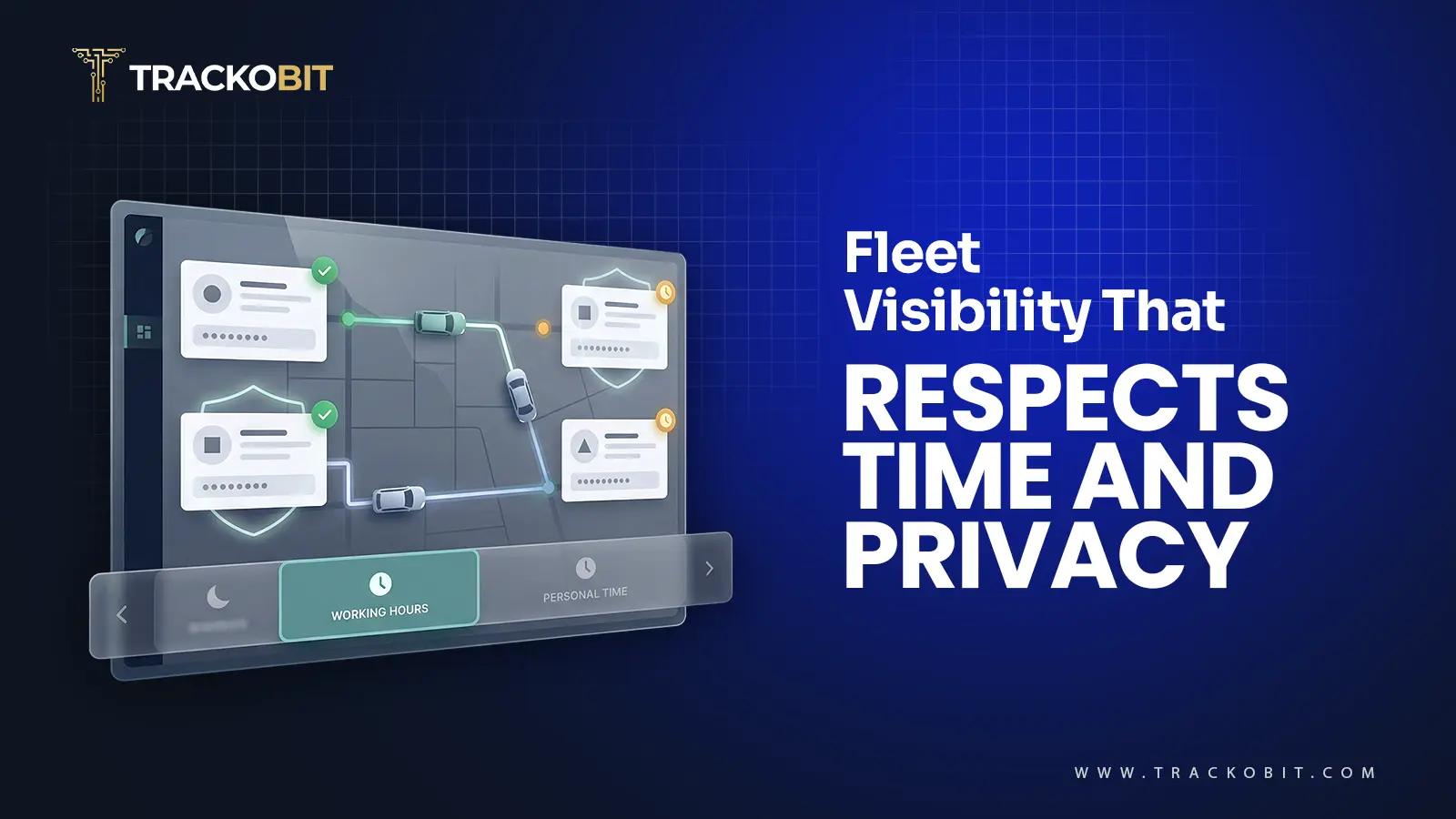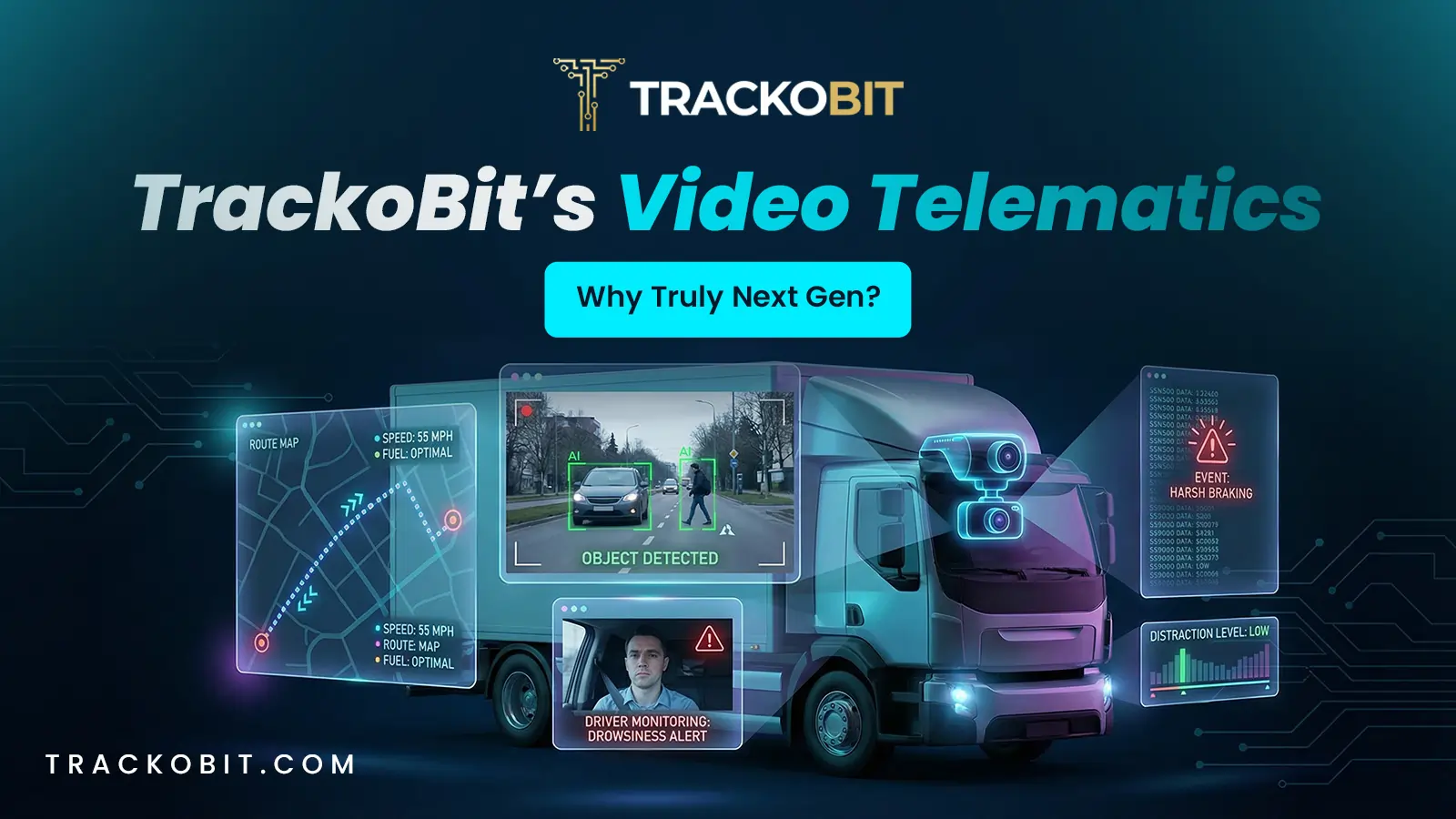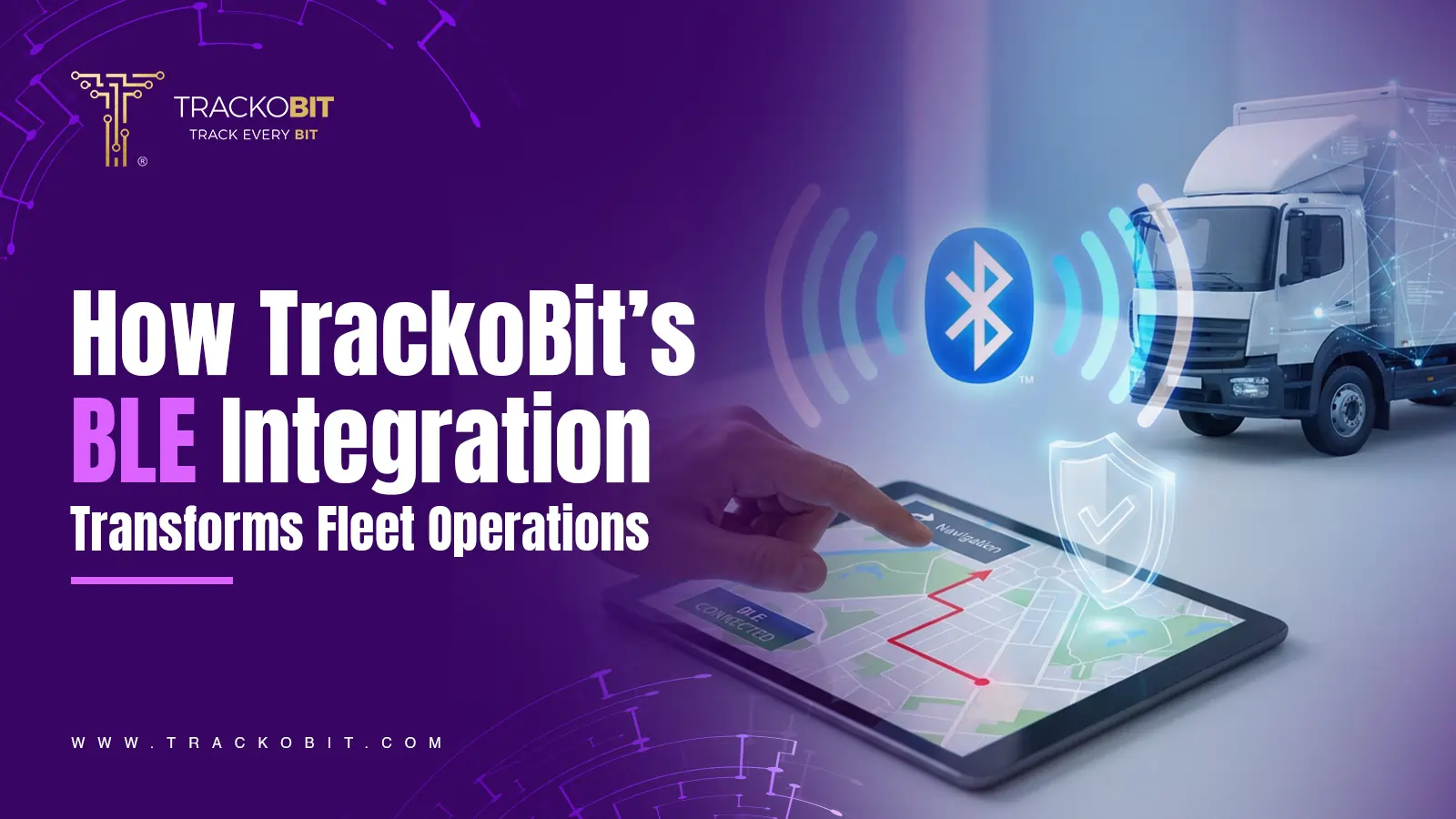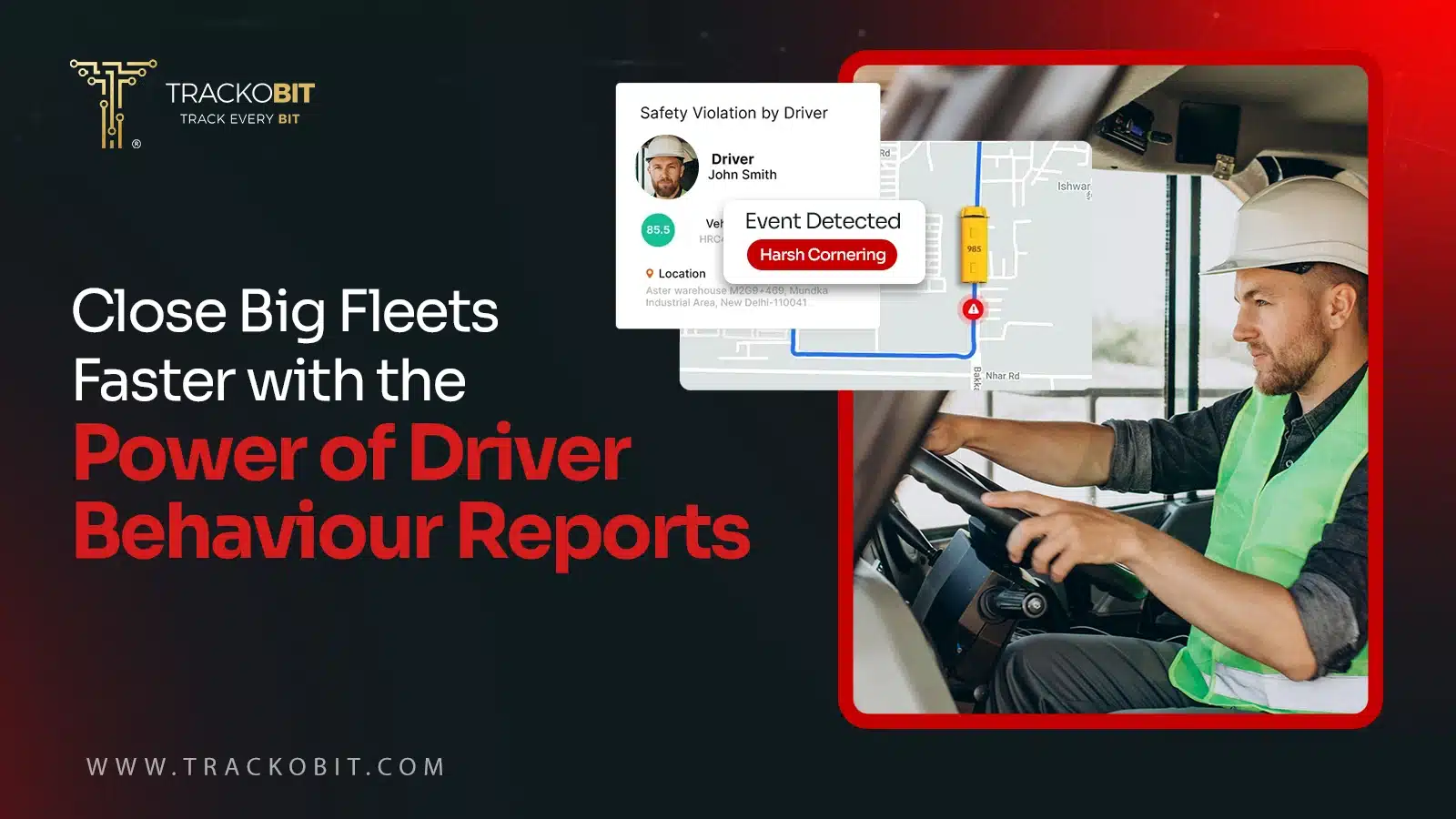-
TrackoBit
Manage commercial vehicles with the new-age Fleet Management Software
TrackoBit -
TrackoField
Streamline your scattered workforce with Field Force Management Software
TrackoField -
Features Resources
-
Blog
Carefully curated articles to update you on industrial trends. -
White Paper
Insightful papers and analysis on essential subject matters. -
Glossary
Explore an alphabetical list of relevant industry terms. -
What’s New
Get TrackoBit & TrackoField monthly updates here. -
Case Study
Explore the cases we solved with our diverse solutions. -
Comparisons
Compare platforms, features, and pricing to find your best fit.
-
About Us
Get to know TrackoBit: our team, ethos, values, and vision. -
Careers
Join the most dynamic cult of coders, creatives and changemakers. -
Tech Support
Learn about our technical support team and services in detail. -
Events
Check out the exhibitions where we left our marks and conquered. -
Contact Us
Connect with us and let us know how we can be of service.
4 Common GPS Tracking Types, Features & Workings
- Author:Nandita Gupta
- Read Time:5 min
- Published:
- Last Update: January 7, 2026
Table of Contents
ToggleGPS tracking can be for personnel tracking or tracking of important consignment in transit. Here are Common GPS Tracking Types that you must know of.
Table of Contents
Toggle
GPS tracking has become a non-negotiable need for everyday life and industries with assets on the move. GPS technology plays a crucial role in providing real-time location data for tracking a fleet of vehicles, exploring a new city and even keeping track of your fitness activities.
However, note that not all GPS tracking systems are created equal. We now have a variety of common GPS tracking hardware supported by personal, wearable, and vehicle GPS trackers. And there are specialised GPS tracking devices suitable for tracking commercial trucks and vehicles.
In this guide, we are dissecting different types of common GPS tracking, with their applications, features, and overall benefits. So whether you’re a tech enthusiast, a fleet manager, or someone simply curious about GPS technology, read on.
What is GPS Tracking? The Basics!
GPS tracking involves a tracking device that communicates with satellites to provide accurate location data, speed, route history, movement, and alerts for tracked vehicles, assets, or objects.
What is a GPS Tracker?
All the process of extracting and transmitting geolocation and route data is done via special GPS trackers or common GPS tracking devices. You will find a variety of GPS trackers including plug-and-play, OBD GPS trackers, hardwired GPS trackers, battery-powered GPS trackers, and active and passive GPS trackers.
Read Blog – Top 6 Variety of GPS Trackers/Devices- Here
4 Most Common GPS Tracking Types with Application
1. GPS Vehicle Tracking
GPS vehicle tracking is vital for any firm that’s indulged in logistics and transportation services. This type of tracking ensures that the vehicles in the fleet are running on schedule, designed paths, and routes. It gives better visibility of the vehicle’s live whereabouts.
Quality commercial vehicle GPS trackers are used in sync with the best fleet tracking software to ensure on-time vehicle dispatch, keep up with operational data, and track driver behaviour.
Operators get the option to pair their software with the following types of vehicle GPS trackers:
- Mobile GPS – Mobile GPS devices require a combination of software and the GPS feature available in the mobile device to track vehicle and driver’s locational data.
- Plug-in Play GPS – Plug-in and play GPS devices are attached to the onboard diagnostics connector, which provides driver data on things such as idle time, harsh braking, or any event concerning engine performance.
- Wired GPS vehicle tracking device or ELD – Wired GPS devices are securely connected to the engine. These wired devices give the most accurate information on the vehicle’s current location, engine health, and driver’s behaviour.
2. Asset GPS Tracking
Asset GPS tracking, commonly referred to as equipment tracking, works just like GPS vehicle tracking. However, the only difference is that it is used to track mobile and immobile assets like tools, heavy equipment, trailers, consignments, cargo, and other important assets whose safe transfer and commuting are crucial for businesses.
Specially built and capable asset GPS trackers are placed on the desired assets to commence real-time geo-location tracking. They inform you when the object or asset is travelling, at a halt, or has returned to a specific location. This tracking type is very useful in the mining and construction industry, where a variety of digging and construction equipment are used, and their theft and misplacement are the most treacherous problems.
![]()
3. GPS Tracking through Wearable Devices
As the name suggests, wearable GPS tracking involves locational tracking via a wearable tracker that can be easily attached to any clothing piece. Wearable GPS devices are typically used for personal tracking of animals, children, or the elderly.
Wearable GPS technology is a big deal for tracking fleet operating drivers and field employees. Today, these devices are available in different forms and kinds that effortlessly fit in your fleet drivers’ keychains or pocket flashlights.
Dog or animal collar GPS trackers are among the most popular wearable GPS trackers that help find missing animals or pets. Most GPS trackers available for kids come with advanced capabilities to store local games or exchange communication.
Wearable GPS tracking is suitable for the personal tracking of individuals whose live locational data matters.
4. Mobile Based GPS Tracking
The cellphone-based tracking is suitable for tracking your fleet drivers or any field operational staff’s mobile devices, thus locations. The system records the exact location of assets with the help of GPS satellites. This method requires a strong and constant internet connection, along with a smartphone with pre-installed GPS vehicle tracking software.
Many commercial fleet operators use special cellphone GPS trackers in the form of drivers’ apps to locate their drivers’ locations and updates on scheduled itineraries and tasks.
Sim Based GPS Tracking (Not Similar to Mobile GPS Tracking)
In the case of sim based GPS tracking, the location of the nearest cellular tower is captured, which helps determine the location of the sim and the mobile device. In this kind, your drivers are required to install a driver app on their phones and give consent to commence with their locational tracking. The best part is – there is no need to have a stable internet connection and any feature phone would work just fine. Very useful in saving costs associated with hefty GPS tracker installation and the risks of giving smartphones to your operating staff.
As a result, it turns out to be the most cost-efficient method for budget-conscious fleet businesses. There they simply don’t require investing in common GPS tracking devices. Quite affordable, isn’t it?
Parting Words!
We now have clarity that common GPS tracking differs in type all based on requirements. Some use it to track their loved ones, while efficient fleet managers use it to track their cargo-loaded vehicles in transit. Irrespective of how common GPS tracking differs in types and purposes, it has one ulterior motive that’s similar, which is to…
“Have a better oversight and ensure safety”
This prodigy technology is a straight investment that your fleet operating business won’t regret. With a one-time cost, you can stay on top of locational and operational data that ensures prompt, on-time, and safe transit of valuable vehicles and consignments. TrackoBit ensures you are guarded with self-updating data and emergency alerts to protect assets from theft and mishandling.
Most Trending Reads:
- What is OBD2? Complete Working and Features
- What is Dynamic Routing in Logistics? Benefits & How It Works?
- What is Vehicle Telematics Insurance? Types & Laws
FAQs on Types of Common GPS Tracking
-
What are types of common GPS tracking?
common GPS tracking can include - commercial GPS vehicle tracking, asset GPS tracking, wearable GPS tracking, and cellphone-based GPS tracking.
-
What are vehicle GPS trackers?
GPS trackers are devices outfitted with vehicles' OBD ports. They transmit vehicles' locational and operational data to a central GPS vehicle tracking system.
-
What are the benefits of GPS tracking software?
When you have an upgraded and feature-rich vehicle GPS tracking system software in place, you get live data around your vehicle: 1. Real-time location and route history data. 2. Current speed and geofencing alerts. 3. Vehicle’s daily time, movement, or activity status. 4. Total mileage and trackers’ battery life. 5. Hours of service and device tempering alerts, tampering alerts. 6. Update on environmental conditions such as humidity, light, and pressure that cause the tracker to behave oddly.
-
What is GPS vehicle tracking?
GPS tracking is a process where you get live locational coordinates and updates of any vehicle, asset, or personnel.
-
What are wearable GPS trackers?
Wearable or personal GPS trackers are potable and easy-to-attach devices that help guard and locate children, the elderly, or any on-field driver or employee.
Nandita is the Team Lead for Content Marketing at TrackoBit, bringing over a decade of experience in B2B, B2C, and IoT sectors. She has a proven track record of helping Read More
Related Blogs
-

When Tracking Needs a Clock: Rethinking Fleet Visibility
Tithi Agarwal December 24, 2025Read on to understand why fleet tracking works better when it follows working hours. Because visibility should support operations, not…
-

What Makes TrackoBit’s Video Telematics Software Truly Next-Gen?
Shemanti Ghosh December 17, 2025TrackoBit’s video telematics software blends smart video intelligence with full server control. The result? Superior fleet reliability and safety.
-

Plug, Pair, Perform TrackoBit Introduces BLE Sensor Integration
Tithi Agarwal November 26, 2025TrackoBit’s BLE Sensor Integration enables wireless, real-time monitoring with faster installs and accurate insights. It improves fleet efficiency, visibility, and…
-

How to Use Driver Behavior Reports as a Sales Hook to Close Big Fleets
Tithi Agarwal October 16, 2025TrackoBit’s driver behavior reports empower fleet providers to win big contracts by showcasing safety, efficiency, and measurable ROI.

Subscribe for weekly tips to optimize your fleet’s potential!
Your inbox awaits a welcome email. Stay tuned for the latest blog updates & expert insights.
"While you're here, dive into some more reads or grab quick bites from our social platforms!"Stay Updated on tech, telematics and mobility. Don't miss out on the latest in the industry.
We use cookies to enhance and personalize your browsing experience. By continuing to use our website, you agree to our Privacy Policy.


































